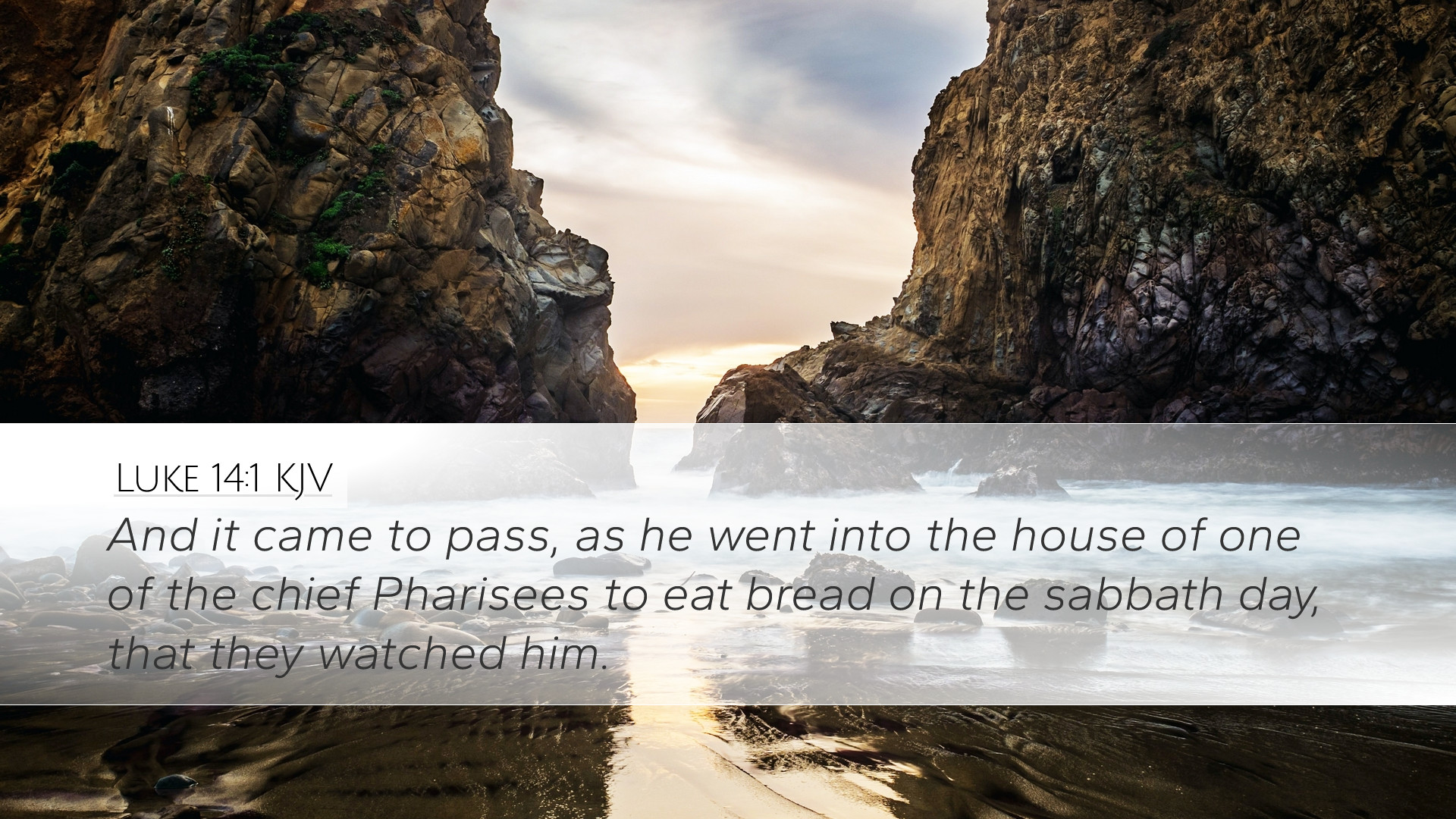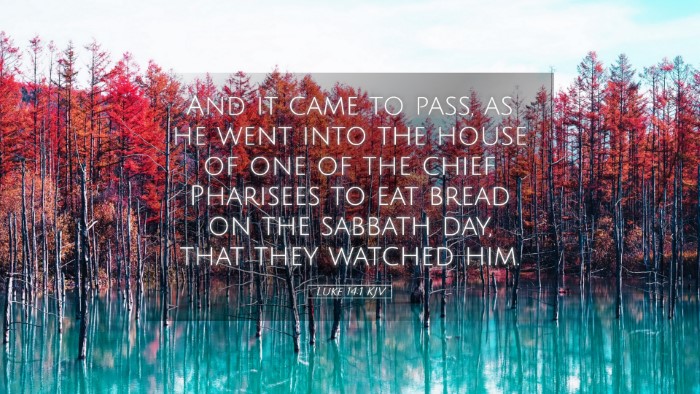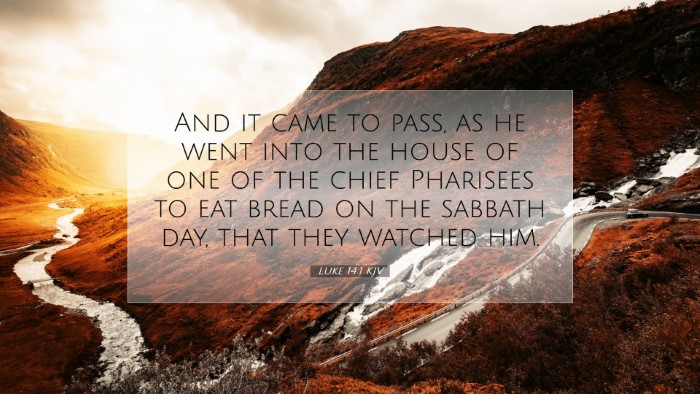Commentary on Luke 14:1
Bible Verse: "And it came to pass, as he went into the house of one of the chief Pharisees to eat bread on the sabbath day, that they watched him." (Luke 14:1)
Introduction
This verse sets the stage for a significant encounter between Jesus and the religious leaders of His time. It reflects the ongoing tension between the primary mission of Jesus and the Pharisees' rigid interpretation of the Law. The setting—a meal at the house of a prominent Pharisee—reveals both social customs and theological disputes that would unfold throughout the chapter.
Plausible Context
According to Matthew Henry, this narrative begins as Jesus enters a Pharisee's home, which is notable not only because of social norms regarding interactions with the Pharisees but also because it serves as a platform for deeper theological instruction. The meal represents not merely physical sustenance but a convocation of ideas and beliefs. Gathering on the Sabbath indicates a significant breach is brewing regarding the observance of this holy day.
Theological Implications
Albert Barnes comments on the implications of Jesus attending such a gathering. The fact that He dines with a Pharisee suggests a willingness to engage with those who have differing views, highlighting His mission to reach the lost, including the religious elite. This act illustrates Jesus’ approach to ministry—He is not deterred by potential controversies, nor does He shy away from fellowship, which could further provoke His critics.
Moreover, Adam Clarke elaborates on the phrase "they watched him." This observation indicates that the Pharisees were not merely curious but were deeply intent on scrutinizing Jesus. Their motives were rooted in their desire to validate their convictions against Him. The constant surveillance reflects a larger pattern of disdain and distrust that characterized the relationship between Jesus and the Pharisees.
Cultural Context
The setting of a feast, particularly on the Sabbath, symbolizes the rich traditions of Jewish culture. Matthew Henry points out that meals during this time were infused with religious significance; they were considered a time for fellowship and sharing. Thus, the divergence in views on Sabbath observance becomes paramount. The actions of the Pharisees illustrate their adherence to tradition over compassion, which starkly contrasts the compassionate mission of Jesus.
Albert Barnes further emphasizes that such gatherings were also opportunities for the Pharisees to affirm their social status and authority. Their attempt to entrap Jesus examines more than theological ideologies; it reveals power dynamics at play, signifying a deeper commitment to tradition than truth.
Key Takeaways
- Engagement with Others: Jesus' willingness to dine with the Pharisees reflects the importance of engagement, even with those holding opposing views.
- Scrutiny and Suffering: Jesus was under continuous surveillance, an expected consequence for those challenging established norms and traditions.
- Compassion on the Sabbath: This narrative serves as a prelude to the teaching and miracle that follow, encompassing Jesus’ view of mercy over legalism.
- Social Implications: The context of a meal conveys the intersection of theology and social dynamics, inviting readers to reflect on how Jesus navigated complex relationships.
Conclusion
Luke 14:1 acts as a poignant reminder for believers today about the nature of societal and theological challenges. As pastors, students, theologians, and scholars engage with this text, it invites a critical examination of how they respond to differing beliefs within their communities. It also emphasizes the continuity of Jesus’ message on compassion, grace, and the ultimate call to love one another, transcending rigid interpretations of the law.
In essence, this verse prompts serious reflection on the heart of Jesus’ ministry—nurturing relationships, challenging the status quo, and embodying the divine mercy that the Law intends to portray. As this chapter unfolds, it prepares the reader to witness the transformative power of Jesus’ teachings, reinforcing that God’s Kingdom often emerges through the most unexpected encounters.


